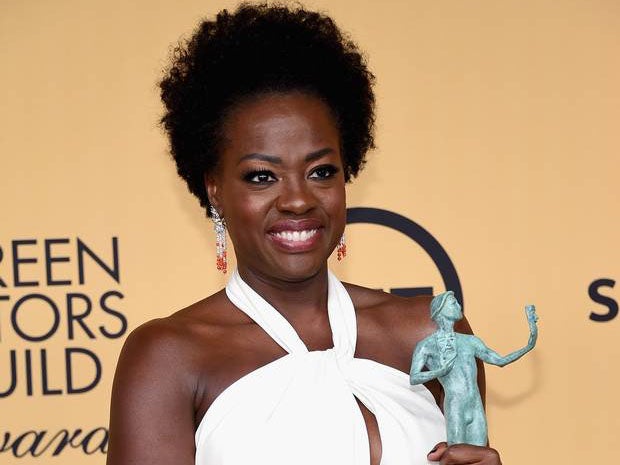Viola Davis' win at the Emmys was felt by all of us who struggle to join white women over the line
There is more opportunity out there now than there ever has been before - but black women still have to be exceptional where others have to merely be competent

Your support helps us to tell the story
From reproductive rights to climate change to Big Tech, The Independent is on the ground when the story is developing. Whether it's investigating the financials of Elon Musk's pro-Trump PAC or producing our latest documentary, 'The A Word', which shines a light on the American women fighting for reproductive rights, we know how important it is to parse out the facts from the messaging.
At such a critical moment in US history, we need reporters on the ground. Your donation allows us to keep sending journalists to speak to both sides of the story.
The Independent is trusted by Americans across the entire political spectrum. And unlike many other quality news outlets, we choose not to lock Americans out of our reporting and analysis with paywalls. We believe quality journalism should be available to everyone, paid for by those who can afford it.
Your support makes all the difference.Last night, Viola Davis became the first black woman ever to win an Emmy for Best Lead Actress in a Drama Series.
As she was announced as the winner, she got up and hugged other black nominee Taraji P Henson (who was nominated for Empire). That hug between Henson and Davis was a powerful symbol. It symbolised the fact that, effectively, both Henson and Davis had won a victory: a black woman was winning in Hollywood.
In disbelief Davis hurried, flustered, to the stage and started off her acceptance speech with a quote by Harriet Tubman: “In my mind, I see a line. And over that line, I see green fields and lovely flowers, and beautiful white women with their arms stretched out to me over that line. But I can’t seem to get there no-how. I can’t seem to get over that line.”
Davis was referring to the lack of roles written for women of colour in the film industry. This is clear as we are still in the times of having the “black firsts” (first black person to achieve something no other has). It’s hard to believe that Viola Davis has been acting in the movie industry for more than 20 years; in her career she has been nominated for Oscars, Emmys, BAFTAs, Golden Globes and many more, but the emotion on her face as she ascended to the stage after winning Best Lead Actress spoke volumes about the novelty of this situation.
As a young black woman, it was something else Viola said that really resonated with me: “The only thing that separates women of colour from anyone else is opportunity.” This applies to all women of colour in every field of work, not just those in acting. Often, women of colour are visible and qualified and present in an industry, but they are simply not given the opportunities to perform to the best of their ability: roles are not written for them, promotions are not offered to them, employers write them out of the narrative before they’ve even worked out what sort of characters they might be.
Nowadays there are various positive action schemes in place in the working world to ensure that managers at least consider a diversity of people for their workforce. However, even in these schemes, the representation of women of colour is proportionally the lowest. Even when the opportunities are there, they only add a tiny weight to the scales balanced against us.
Young women of colour, facing multiple stereotypes about youth, femininity and ethnicity, have to be exceptionally good to become even visible. Merely good at your job? Don’t count on progressing down the career path along with the other rich white males who are just as competent as you. You have to shine to even be able to stroll alongside them.
Sidelining may not be intentional, but it’s insidious and it happens. Opportunities become fleeting moments in which you have to convince your employer that you are suitable and worthy of a doing a good job, simply based on the fact that you are an ethnic minority and therefore suspect.
Because of this, Viola Davis’ achievement is so much more than a single victory. She has smashed through the glass ceiling, reached the top and become visual proof for so many young black women that the highest honours are achievable. She is an exceptional woman – but not everyone should be exceptional merely to be noticed.
Join our commenting forum
Join thought-provoking conversations, follow other Independent readers and see their replies
Comments